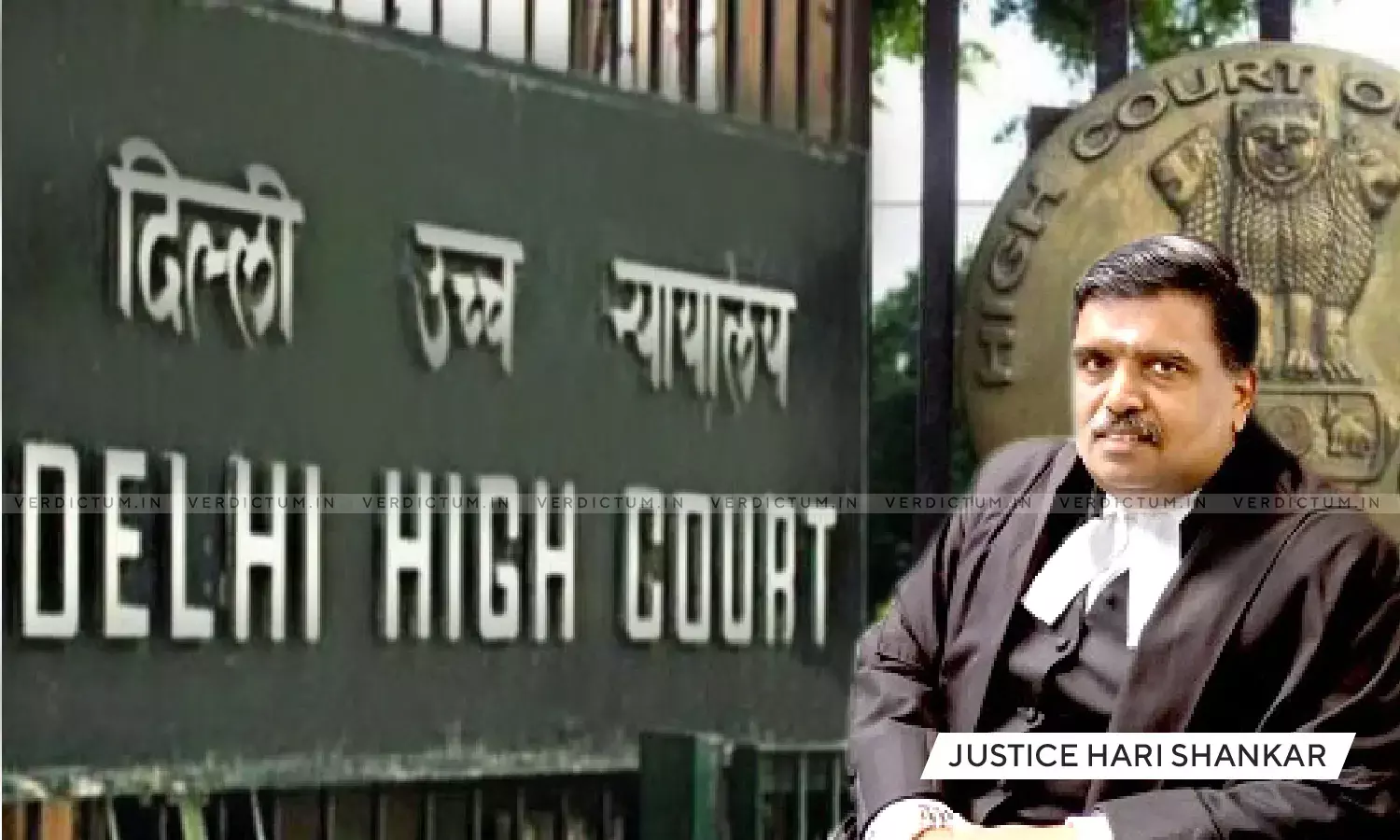Court U/S.11 A&C Act Cannot Examine The Aspect Of Arbitrability Of The Dispute: Delhi HC
The Delhi High Court observed that under Section 11 of the Arbitration and Conciliation Act, 1996, the Court cannot examine the aspect of arbitrability of the dispute.
The Court was hearing an Arbitration Petition under Section 11(6) of the Arbitration and Conciliation Act, 1996, for reference to the disputes between the parties to arbitration.
The bench of Justice C Hari Shankar while noting that the decision in SBI General Insurance Co Ltd v Krish Spinning has resulted in a paradigm shift in the scope of examination by a Section 11 Court, the Court observed, “As of today, a Section 11 court cannot examine the aspect of arbitrability of the dispute.”
Senior Advocate Rajeeve Mehra appeared for the Appellant and Advocate Amit George appeared for the Respondent.
Brief Facts-
The Petitioner took two insurance policies from the respondent through Howden Insurance Brokers. These policies covered risks related to cyber security breaches. Following a cyber-attack that affected its banking partners, the Petitioner claimed a loss of ₹ 8.58 crores. A forensic report by BDO India LLP estimated the covered loss at ₹ 2.91 crores, but the respondent, after a delay, rejected the claims on the ground that the breach occurred in the banks' networks. The Petitioner sought to refer the disputes to arbitration under the 1996 Act.
The Court observed, “It is a well settled principle of interpretation of judicial authorities, permeating Article 141 of the Constitution as well, that a judgment of a Court is an authority for what it says, and not for what may logically be said to flow from it. No corollary can be read into a judgment of the Supreme Court. The Court can only read the judgment as elucidating what is specifically stated therein.”
The Court noted that there is nothing in the decision in SBI General Insurance which holds that, where the claim of the insured party also relates to the liability of the insurance company, the dispute would not be arbitrable because of the exclusionary covenant in the insurance clause.
The Court said that the Supreme Court in SBI General Insurance, left no scope for doubt on the aspect at all, by observing that “the scope of enquiry at the stage of appointment of arbitrator is limited to the scrutiny of prima facie existence of arbitration agreement, and nothing else”.
Accordingly, the Court said that it is not inclined to accord, to the decision in SBI General Insurance, any interpretation which would dilute the intent of the said decision, which is to minimise the scope of examination at a Section 11 stage and to relegate as many issues in controversy as possible to the Arbitral Tribunal for decision.
The Court said that the disputes can be referred to arbitrators.
Finally, the Court disposed of the Petition.
Cause Title: Payu Payments Pvt. Ltd. v. New India Assurance Company Limited (Neutral Citation: 2024:DHC:7513)
Appearance:
Appellant: Senior Advocate Rajeeve Mehra, Advocates V. Anush Raajan and Tanisha Dhoot
Respondent: Advocates Amit George, Gurkaranbir Singh and Dushyant Kishan Kaul












